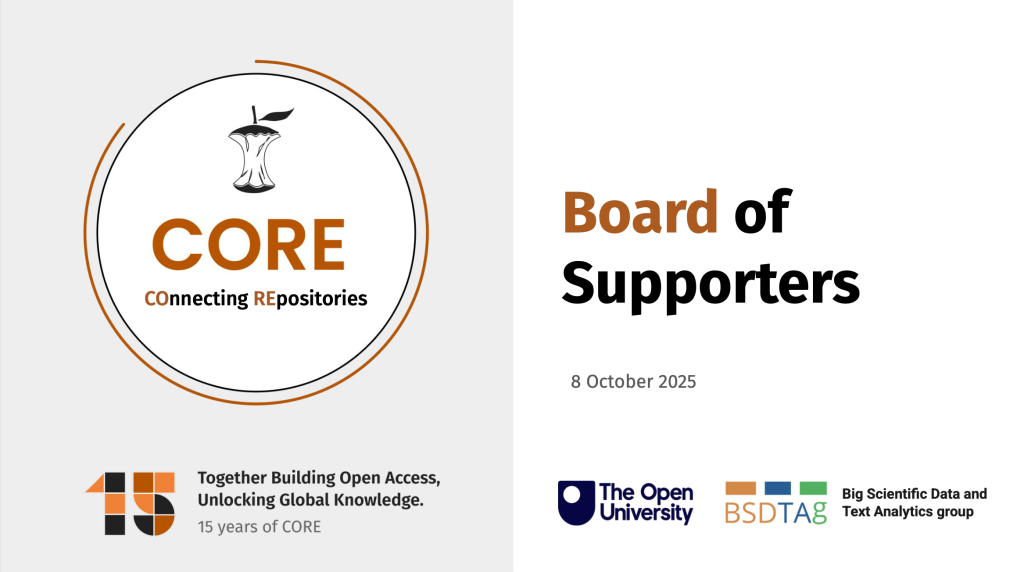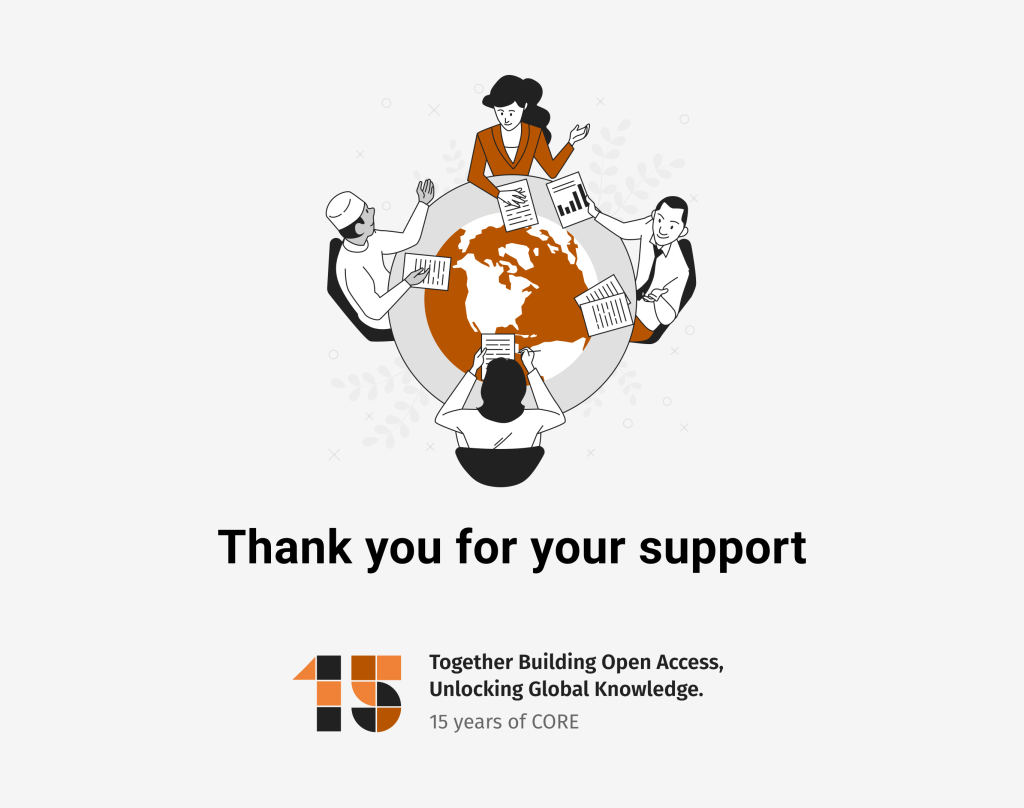
Twice each year, CORE’s Board of Supporters (BoS) meeting brings together our members, partners, and collaborators to exchange ideas, share progress, and shape the priorities that guide our development. The October 2025 meeting marked yet another successful, well-attended session and the second of two such gatherings this year. It served as a powerful reminder of how community governance has been central to CORE’s growth and sustainability, and celebrated our 15th anniversary.
Over the years, CORE has evolved from a national repository service to one of the world’s leading open scholarly infrastructures. This success is rooted in the principles of openness, co-design, and shared responsibility, values we continue to uphold through the Board of Supporters.
The October meeting was rich with insights and forward-looking discussions, showcasing the depth and diversity of expertise within our community. Among these, three areas stood out as central to shaping the future of open research infrastructure.
1. Defining the Terms for AI Engagement
With the rise of Large Language Models (LLMs) and increased traffic to repositories, CORE is proactively working to protect and define the repository ecosystem’s role. For Responsible AI, we are actively participating in COAR’s new Task Force on Dealing with Bad Bots to develop essential policy and guidance to manage AI-driven access responsibly. Furthermore, CORE announced a pilot module for the SoFAIR (Software Archival) project. This module will use machine-assisted workflows to identify, validate, and register research software assets within papers, directly addressing the reproducibility crisis in research.
2. Launching New Community Working Groups
To advance compliance, trust, and interoperability across the global repository network, we are launching two new, dedicated working groups led by our community. The FAIR Certification Working Group will guide the development of a new module designed to offer public recognition and data-driven external validation of a repository’s commitment to FAIR (Findable, Accessible, Interoperable, Reusable) standards.
Separately, the REF 2029 Compliance Working Group will focus on supporting UK Higher Education Institutions (HEI) in preparing for the next Research Excellence Framework, shaping the future of the CORE Open Access Compliance module and improving vital metadata sharing.
3. Strengthening Infrastructure & Visibility
Our commitment to index and provide scalable access to global research continues to be our core mission. CORE now indexes over 428 million records from 13,000+ data providers worldwide. Infrastructure enhancements discussed included two major areas. First, we plan for Platform Integration, which involves further integrating CORE functionalities (like metadata enrichment and duplicate detection) directly into popular repository platforms, such as DSpace, reducing administrative burden for providers. Second, Dashboard Improvements were noted, with recent updates including new functionality for ORCID enrichment and a simplified ‘Request reindexing’ feature, giving providers better control over their data in CORE.
Expert Insights That Inspired Us
We were privileged to hear from two outstanding speakers:
Allan Hanbury, Professor for Data Intelligence at TU Wien, shared a fascinating use case on Compare, a modular framework for long-context scientific comparisons. His talk highlighted TU Wien’s collaboration with CORE, including data access via membership, a research visit, and a joint publication accepted at CIKM 2025 (pre-print here).
Kathleen Shearer, Executive Director of COAR, explored the future of open scholarly infrastructure. Her insights on trends such as the rise of AI, digital sovereignty, and the need for interoperability reinforced the importance of community governance and proactive engagement.
As we look ahead to the next 15 years, CORE remains committed to building sustainable, community-led infrastructure that empowers open access and open research worldwide.
If you’re passionate about shaping the future of open scholarly infrastructure, we invite your organisation to become part of CORE’s governance community and contribute to this shared vision.
Ready to get involved?
Email mologadi@open.ac.uk to learn how your organisation can join CORE’s governance community and help shape the future of open scholarly infrastructure.



